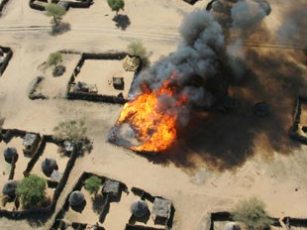Sudan appoints new Darfur prosecutor
August 16, 2011 (KHARTOUM) – The Sudanese Ministry of Justice has tipped its undersecretary to replace the special prosecutor for Darfur Abdel-Dayem Zumrawi who tendered his resignation four months ago.

But the two prosecutors who occupied the position before have failed to try or bring charges against any individual despite credible reports of atrocities committed during the zenith of the conflict in 2003 and 2004.
On Tuesday, the ministry of justice announced that its undersecretary, Councilor Issam Abdul Gadir Al-Zain, will proceed to the position of a special prosecutor for Darfur, which has been vacant since the former prosecutor Zumrawi officially resigned in mid-April.
Zumrawi was appointed last October to replace his predecessor Nimr Ibrahim Mohamed who occupied this position since it was created. The former prosecutor admitted in December last year that efforts to serve justice in Darfur had been undermined by political interferences.
The ministry’s resolution has charged the new prosecutor and his aides with investigating war crimes, crimes against humanity and genocide in the region as well as crimes contained in the Sudanese Anti-Terrorism Law of 2001.
Failure by the Sudanese judiciary to act on Darfur has led the United Nations Security Council (UNSC) in March 2005 to refer the situation in Darfur to the International Criminal Court (ICC) after a UN international commission of inquiry concluded that the Sudanese judiciary was unwilling or unable to carry out credible prosecutions in the war ravaged region.
Consequently, the ICC has charged three individuals from the government, including president Omer Hassan Al-Bashir, South Kordofan governor Ahmed Haroun and militia leader Ali Kushayb. All three face charges of war crimes and crimes against humanity but Bashir is also wanted for genocide in connection with claims that he orchestrated a campaign to wipe out the African tribes of Fur, Zaghawa and Masaalit in Darfur.
The Sudanese leader denies any wrongdoing and vehemently criticizes the Hague-based court as a tool of a Western conspiracy to dismantle his regime.
Darfur’s war broke out in February 2003 after rebel groups took up arms against the government, accusing it of marginalising the region in terms of development, wealth and power sharing.
In response, the government mobilised its forces and waged a brutal counterinsurgency campaign, leading to the death of 300,000 people and displacement of 2.7 million, according to UN figures.
(ST)

